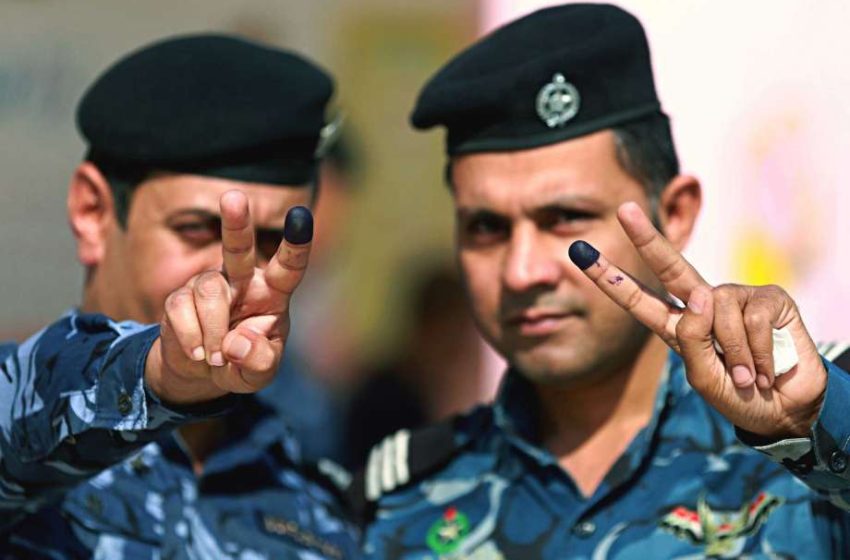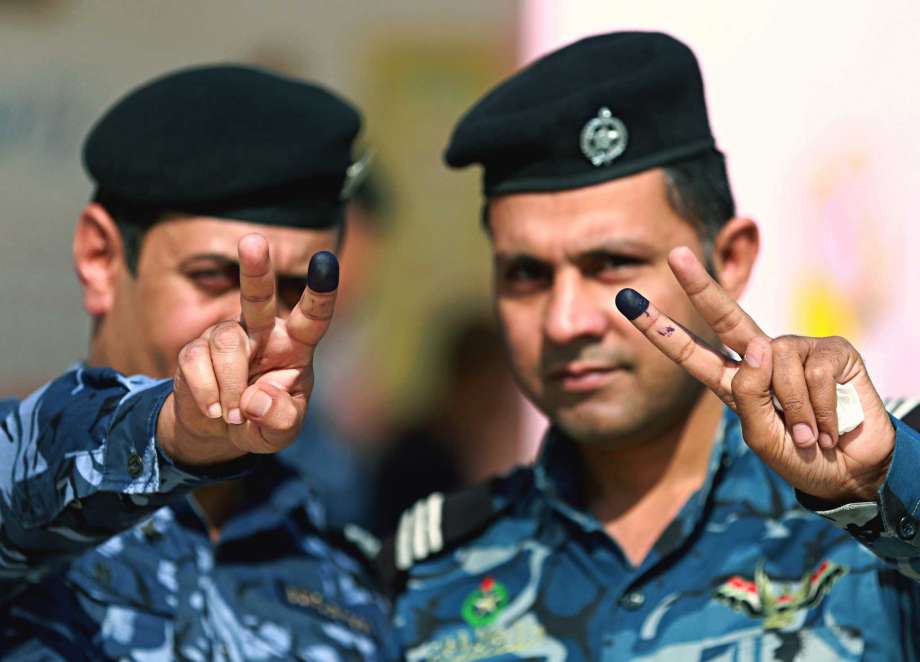Ahead of Iraq’s elections, there are signs that sectarianism is at last collapsing


Baghdad (IraqiNews.com) This weekend people across Iraq will take to the polls in the country’s national elections. Despite the inevitable debate that will follow – likely to cover everything from the results to turnout to electoral flaws – these elections are important. They represent an exciting opportunity for the country to begin a new phase following the defeat of ISIS in 2014, and embody Iraq’s resilience against the brutal conflict that has ravaged their country over the last four years.
Ahead of the upcoming elections, we travelled throughout Anbar – a Sunni-majority province west of Baghdad, speaking to local civilians rebuilding their lives after years of brutality under ISIS. The most striking change is a shift away from traditional identity-based tribal and sectarian politics. Sectarianism leads to the poor treatment of some ethno-religious groups over others and undermines any progress for developing Iraq into the economic powerhouse that it has the potential to be. Many believe it is sectarianism which served to fracture the country, contributing to the rise of division and forming the backdrop to the successive conflicts since 2003. Since Saddam Hussain was toppled, political parties have often been built around sectarian identities rather than on policies which meet the long-term interests of all Iraqis.
There are signs on the ground that a decline in sectarianism is taking place. I met Abu al-Tayib, a Sunni candidate who was to my initial surprise, standing for election in Fallujah under Haider al-Abadi’s Shia-led Nasr Coalition. This is the first time a traditionally Shi’a-led party is campaigning in predominantly Sunni provinces, suggesting that sectarian tensions and wounds are slowly beginning to heal. I asked him (perhaps bluntly) why a Sunni from Fallujah would stand for election as a candidate for a Shia party. Al-Tayib wants to “break from sectarianism” and told me he joined Nasr for two primary reasons: firstly, to break the perception that Iraqi politics is driven by sectarianism and, secondly, because Nasr was the only coalition that nominated candidates in every province in Iraq, representing all ethno-religious groups. Motivated by his stint as the UN Anbar province manager, he met Iraqis from all walks of life and saw first-hand that Iraqis have far more in common than many imply. Driven by unity and activism, Al-Tayib is part of the next generation of Iraqis who want to build a better Iraq.
This is being matched by an exciting evolution in civil society. Young people are leading this charge, taking a proactive role in instilling change, often at grassroots level. They know that if they do not use civic activism to fill any vacuum left behind, extremists’ poison may mushroom once more. I met Ahmed Falah al-Dhiabi, a prominent civil society activist who heads a project helping those displaced during the conflict. He spoke about his own experience of displacement with fellow Sunnis, Shias, Turkmen and Christians, and how this shattered any sectarian fears he had once held. Ahmed told me young people want to change the image people have of Fallujah so that it is no longer seen as hotbed of extremism and violence. Post ISIS, civilians have a renewed sense of optimism and faith in the country and its institutions. They are proud and ambitious for their future.
While it may be premature to conclude that sectarian narratives no longer shape perceptions, these elections signal Iraqis are increasingly tired of sectarian politics. Across the political spectrum, there appears to be a desire to challenge sectarianism, recognising this is what Iraqi people want. This shift, if sustainable, has the potential to be momentous for Iraq’s future. Yes, these elections are flawed: a vast majority of those likely to win seats at the upcoming elections are the same faces, which is something that must be challenged to ensure positive reform. Nonetheless it is still a step towards change.
The gradual defeat of terrorism is allowing civilians to have their say. Across the region and beyond, elections are taking place – in Iraq, Lebanon and Afghanistan – and while there is a long way to go, the tide is turning towards democracy. Whatever the result, the Iraqi Government must seize on these elections as a chance to unite the country and rebuild trust with citizens, beginning the process of reconciliation. In particular, they must continue to build bridges with Iraq’s youth. After all, with over 60% of the Iraqi population under the age of 30, the country’s current trajectory will be largely determined by young people. This is exciting because despite the clichés, youth does bring hope, and if harvested, it can bring change. The next generation is making itself clear that neither terrorism, nor sectarianism, belong in their Iraq.
Haidar Lapcha and Mohammed Al-Jumaily are based at Integrity UK. Haidar regularly travels across the MENA region focusing on civil society, capacity building and strengthening local communities. Mohammed is a MENA analyst with Integrity UK focusing on Iraqi politics, economics and social issues.
